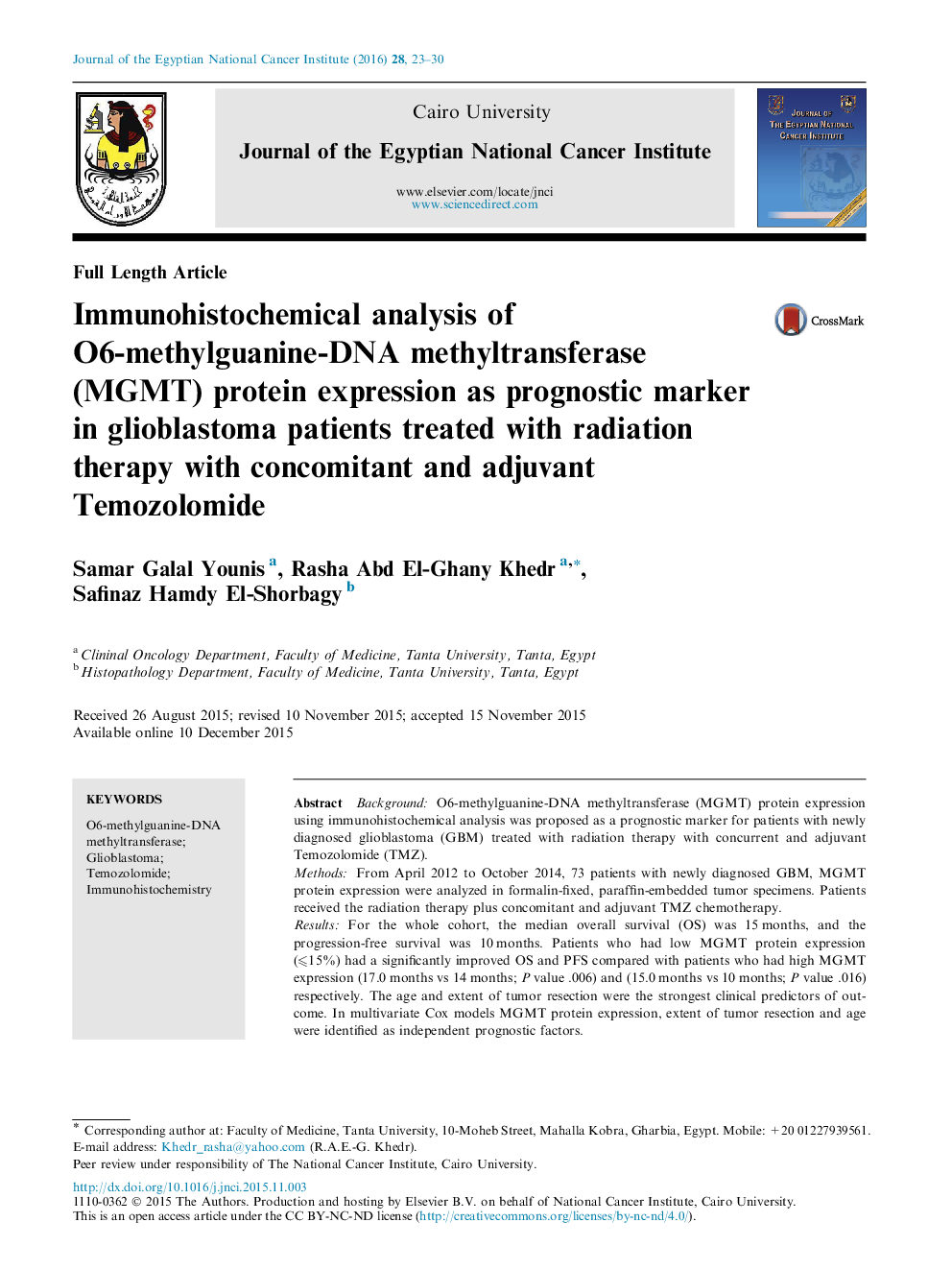| Article ID | Journal | Published Year | Pages | File Type |
|---|---|---|---|---|
| 3988888 | Journal of the Egyptian National Cancer Institute | 2016 | 8 Pages |
BackgroundO6-methylguanine-DNA methyltransferase (MGMT) protein expression using immunohistochemical analysis was proposed as a prognostic marker for patients with newly diagnosed glioblastoma (GBM) treated with radiation therapy with concurrent and adjuvant Temozolomide (TMZ).MethodsFrom April 2012 to October 2014, 73 patients with newly diagnosed GBM, MGMT protein expression were analyzed in formalin-fixed, paraffin-embedded tumor specimens. Patients received the radiation therapy plus concomitant and adjuvant TMZ chemotherapy.ResultsFor the whole cohort, the median overall survival (OS) was 15 months, and the progression-free survival was 10 months. Patients who had low MGMT protein expression (⩽15%) had a significantly improved OS and PFS compared with patients who had high MGMT expression (17.0 months vs 14 months; P value .006) and (15.0 months vs 10 months; P value .016) respectively. The age and extent of tumor resection were the strongest clinical predictors of outcome. In multivariate Cox models MGMT protein expression, extent of tumor resection and age were identified as independent prognostic factors.ConclusionsMGMT expression was identified as positive prognostic factor in patients with newly diagnosed glioblastoma who underwent surgical resection followed by adjuvant radiotherapy and concomitant oral TMZ chemotherapy (the Stupp protocol).
